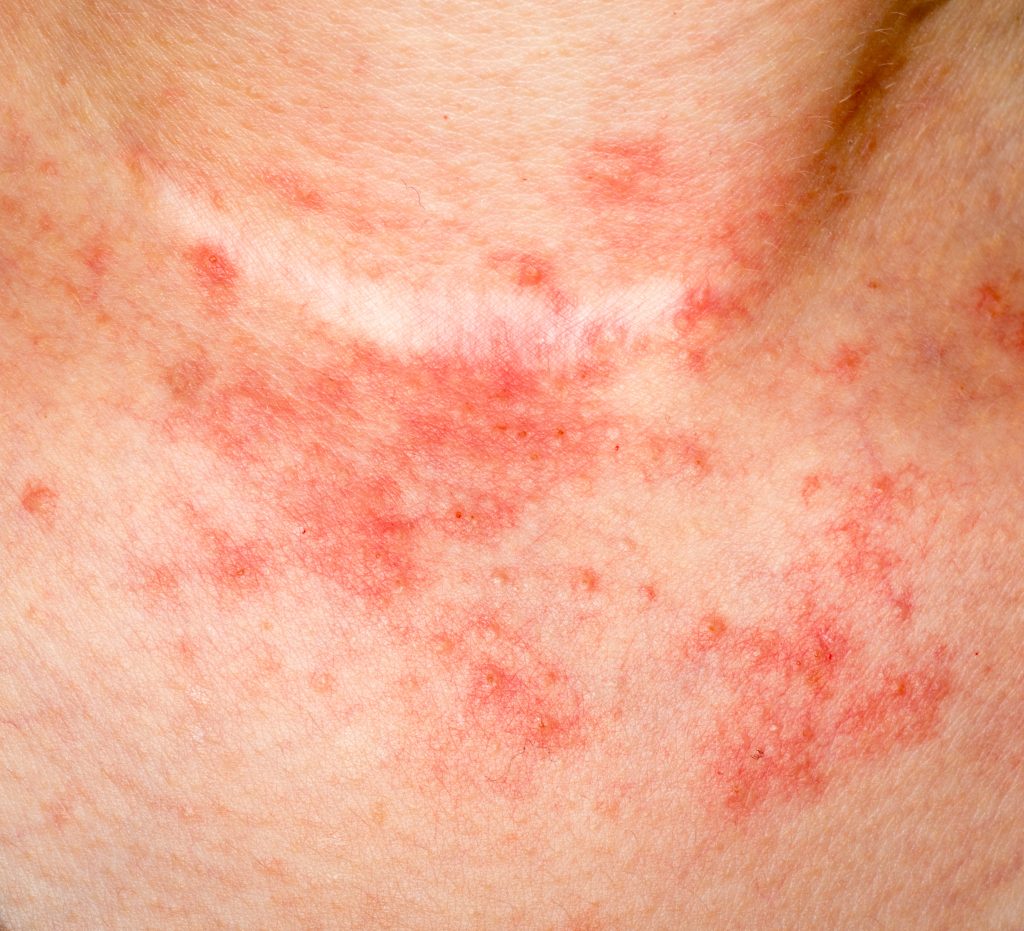What Is Eczema?


Also known as atopic dermatitis, eczema is a condition that results in red, itchy, inflamed patches of skin. Eczema affects approximately 32% of the United States population, and it can bother both children and adults. The exact cause of eczema is unknown, but it’s believed to be the result of an overactive immune system.
You are more likely to suffer from eczema if you have family members who also have it or if you have asthma or other allergies. Some of the most common triggers include animal dander and saliva, soaps, household cleaning products, scratchy clothes, dust, and sweating.
Signs You May Have Eczema
Eczema symptoms differ from person to person, so your eczema may not look the same as someone else’s. That being said, it’s almost always itchy. In addition to the itch, you should look for:
- Dry, sensitive skin
- Dark colored patches of skin
- Red, inflamed skin
- Oozing or crusting
- Swelling
- Rough, scaly patches of skin
You may experience all of the symptoms or just a few, and you may experience more flare-ups at certain times of the year, since weather changes can make eczema worse.
Diagnosing Eczema
If you suspect you have eczema, the only way to find out for sure is to visit an allergist. Allergists are trained to treat eczema and other types of skin conditions, and they can perform tests to confirm a diagnosis. Most likely, your allergist will perform a prick test, which involves scratching the skin’s surface with small needles that contain trace amounts of different allergens. If you are allergic to any of the substances tested, you’ll develop raised bumps about the size of a mosquito bite. This test will help your allergist determine what your primary eczema triggers are and
offer treatment suggestions for relief.
Managing Eczema
Milder cases of eczema are often managed with over-the-counter medications. If you’re a constant sufferer of eczema though, and over-the-counter medications aren’t providing relief, your doctor may suggest corticosteroid injections to help with inflammation, prescription medication, or allergy shots to cure the allergy and eliminate the trigger once and for all. HS


